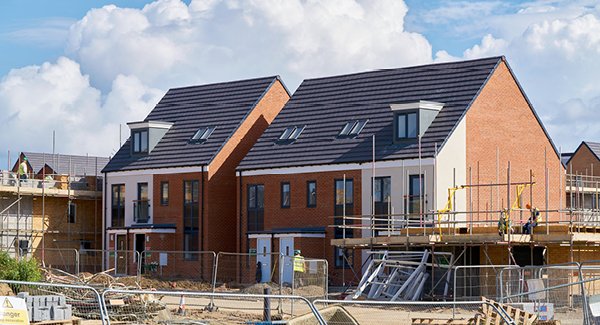How Housing Associations Are Embracing Digital Transformation
Digital transformation has been on top of the public sector’s agenda for many years and the pandemic's aftermath has only increased the need for change.
-1.jpeg?width=1200&name=Optimized-john-schnobrich-FlPc9_VocJ4-unsplash%20(1)-1.jpeg)
In a survey conducted by Inside Housing, 32% of respondents said digital transformation was considered a top priority and 65% of leaders believed digital transformation was key to their development.
This article investigates why and how housing associations should digitally transform to streamline processes, free-up resources and reach strategic goals.
Tenant Engagement
One of the biggest challenges facing housing associations year on year is improving and increasing tenant engagement. Investment in digital transformation can help with that.
Tenant engagement is a way for tenants and landlords to communicate, share ideas and improve housing conditions and services. It’s a two-way street — housing associations and landlords can use it to their advantage, but it also gives tenants a voice.
Digital transformation has the potential to increase this collaboration. Investing in digital platforms to aid communication will help associations create communities that transcend place.
As well as centralised platforms, Twitter, Facebook and WhatsApp are increasingly being used by housing associations as routes for tenant engagement, showing how digital transformation can create new opportunities for greater access.
However, it’s vital that housing associations also address digital inclusion. There will be some tenants that need additional help in using online services. To ensure the effective roll-out of digital transformation, housing associations should provide education for those less digitally experienced.
Data Management
One of the most powerful tools for all organisations is data. Valuable data collection will allow housing associations to spot trends, opportunities and room for improvements. But none of this is possible without digital transformation.
Not only is the collection of data essential, but it also provides value when informing essential decisions and setting attainable strategic targets that contribute towards the overall improvement of housing associations.
Effective data management through digital transformation has been top of the agenda for housing associations for a while — data quality and governance are continually included in the top 10 risks and challenges in the Social Housing Annual Review.
With the appropriate technology and software in place, data management could become much easier for housing associations, covering everything from tracking and preventing rent arrears to managing tenant relationships and external contractors.
Streamlining Processes
Digital transformation knows no limits for streamlining processes. The advancements in technology such as AI and machine learning have transformed how the world and organisations operate. The opportunities housing associations could capitalise on are extensive.
Many housing associations currently work in historic pipelines often silenced and rarely efficient. Investing in digital transformation could save time, money and resources in the long run.
Digital transformation may mean the introduction of automation for tasks that take up a lot of time but can quickly be conducted by machine learning. Examples of this would be basic admin tasks, the uploading of files, automated property and tenant management sequences.
Secure file sharing could also be extremely valuable to housing associations. This would make sharing and accessing information easier, improving the overall process and customer satisfaction.
Although the initial expense and time required to develop effective digital transformation may be significant, the long-term benefits far outweigh the short-term sacrifices.
Improving IT Infrastructure
‘Legacy infrastructure’ within housing associations needs to be brought into the modern-day, eradicating silos that aren't integrated or efficient. IT infrastructure will need an overhaul, streamlining the processes and increasing the collaboration of departments for overall greater functionality.
Not only will it improve overall operational efficiency, but in the wake of COVID-19, it’ll also better prepare housing associations for situations such as remote working. As the needs of the post-pandemic workforce have changed, organisations need to alter to match this.
Improving IT infrastructure will require a shift in attitudes to a digital-first mindset throughout organisations. There’s no doubt about it; digital is the future. Adapt now or get left behind.
Increased Communication and Customer Service
Effective communication is the key to positive customer service within the social housing sector. We’re all too familiar with the frustration of being unable to contact an organisation you need help or an answer from — the same is true with tenants and landlords.
Tenants should have a choice on how to contact their landlords. For some, face-to-face contact will be preferred. However, contacting landlords through digital channels will be more convenient for others.
Digital transformation should create new platforms and channels tenants and housing associations can use to facilitate effective communication. This will help streamline processes for organisations while helping increase tenant satisfaction and confidence.
How to Reach Digital Transformation Goals
Digital transformation won’t happen overnight. Although there’s a large appetite for it, there will be some resistance and barriers to change. Restraints such as cost, time and historical ways of working will need to be overcome.
However, there’s no doubt digital transformation is the route to change for propelling housing associations into the future. It should make tenant relationships more positive, streamline processes and improve operations' efficiency and effectiveness, helping organisations achieve their strategic goals.




